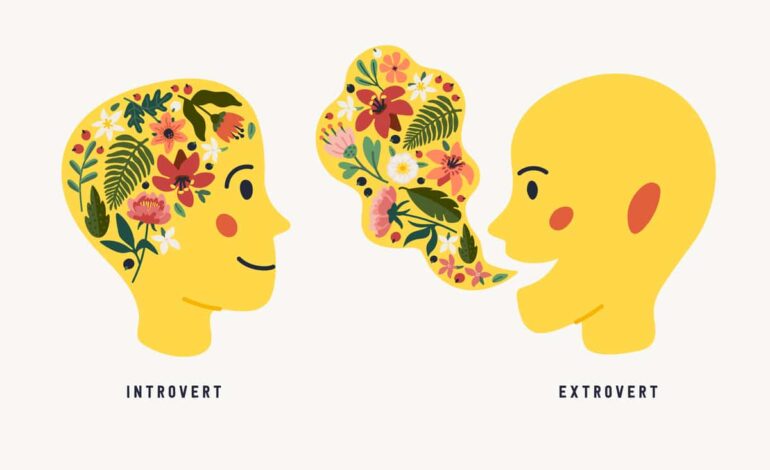
What if you could connect with anyone in the world, no matter where they were or what language they spoke? In a time when it seems like the world is more divided than ever, I believe that we have the power to change the way we communicate with one another. We can do this by embracing vulnerability and being authentically ourselves.
This blog explores how we can use vulnerability to create meaningful connections with others. It’s full of practical tips and tools for creating these connections—from building trust to managing conflict. And it’s full of stories from people who’ve already been through the process themselves and are living proof that vulnerability can lead to incredible things.
Why Embracing Vulnerability Matters
The truth is, vulnerability isn’t just important—it’s necessary. Vulnerability is what allows us to connect with others on a deep, meaningful level. It’s what allows us to break down barriers and open ourselves up to others so we can grow as individuals and as a society. Vulnerability is what allows us to learn and grow from our mistakes and failures. And it’s what allows us to recognize our strengths and use them to create a better future for ourselves and everyone in our lives.
That’s why we believe that vulnerability should be embraced, not feared. Because when we embrace vulnerability, we make sure that everyone has access to the support they need from their friends, family members and loved ones—and that means that everyone has an opportunity for personal growth and success!
The Role of Authenticity
Authenticity is the cornerstone of embracing vulnerability. The two are linked in a very important way: when we are authentic, we feel safe to be vulnerable. On the other hand, when we are not authentic, we feel as though we need to protect ourselves from being vulnerable.
By being true to yourself, you can show others who you really are—and that can be scary! But often, what is most scary about authenticity is that it requires us to be vulnerable and open up about who we truly are with other people. This can be especially difficult if we’ve been taught that being vulnerable is a sign of weakness or insecurity. But actually, being vulnerable is one of the bravest things you can do!
The Fear of Vulnerability

Many people struggle with the fear of being vulnerable. They think that in order to be strong, they must be tough and not let anyone get close to them. In reality, this is not true at all. It’s actually quite the opposite—true strength comes from letting yourself be vulnerable and open up to others. When you do this, you allow yourself to experience love and joy in a way that few people ever do.
You will find that it’s much easier to love yourself when you’re able to express your emotions and feelings with those around you. This also allows others around you to feel like they can be themselves with you as well! If someone feels like they can’t fully express themselves around someone else because they might get hurt or rejected, then this will cause them to hide their true selves from others which can lead towards harmful behavior patterns such as addiction or even suicide.
When we are able to show our true selves through vulnerability then we allow ourselves as well as other people around us to grow into better versions of ourselves over time without having any fear holding us back anymore!
Creating a Safe Space
One key aspect of embracing vulnerability is creating an environment where others feel safe to be vulnerable as well.
If you’re going to be vulnerable, you need to make sure that the people around you are comfortable being vulnerable too. If someone feels like they are being judged for being vulnerable, then it’s hard for them to open up and share their feelings.
A good way to create a safe environment for vulnerability is by setting aside time for listening. For example, if someone is telling you about a problem they have at work, don’t immediately jump in with advice or try to fix it! Instead, just listen and empathize with how they’re feeling. Then ask questions like “What do you think would happen if you talked about this?” or “How are you planning on handling this situation?” The more questions you ask, the more likely it is that your friend will come up with their own solutions rather than relying on yours.
Another way to make people feel safer when sharing their vulnerabilities is by making sure that everyone has equal power in the conversation. That means not interrupting others while they’re sharing something personal or making jokes at their expense or imposing strict rules on what topics cannot be discussed.
The Benefits of Authentic Connections
We’ve all been there—you’re out and about, and you see a friend you haven’t seen in a while. You go to say hello and they look at you like they don’t know who you are.
It’s not fun, but it happens to the best of us: someone we thought was our friend just doesn’t feel that way anymore. And while it can be easy to try to blame them or think they’re being rude, the truth is that sometimes people just change. They move on with their lives, they have new priorities and interests, and they have different priorities than they did when they were younger. And that’s okay!
But if it’s hard for us to accept that change in other people, imagine what it’s like for them. Imagine feeling like nobody understands where you’re coming from these days—like you don’t even understand yourself anymore—and then having someone come up and ask how your day is going without even knowing who you are anymore. That can be pretty scary!
That’s why we need authentic connections: so people can feel understood by those around them. When we are able to connect authentically with others (instead of just “being polite”), it allows us to express ourselves fully without fear of judgment.
Overcoming Setbacks

When someone hurts us, it’s easy to be angry with them for not respecting our feelings and making us feel bad about ourselves. But by being angry with them, we’re still letting them hurt us. We’re still letting them control how we feel about ourselves. And that’s not okay!
So instead of being angry, let’s try something different: Let’s practice acceptance. Acceptance means that when someone hurts us, we don’t get angry—we accept that this person is behaving in a way that makes sense given who they are and what they have experienced in their life. It means we recognize that they probably didn’t mean to hurt us—or maybe even know they were hurting us at all—and we can forgive them because they are human just like us and deserve compassion too.
When we practice acceptance rather than anger when someone hurts us, we take back control over how we feel about ourselves and our lives in general because now it’s not dependent on somebody else treating us poorly or otherwise disappointing us again in some way.
In the end, it’s not about being right or wrong. It’s about being yourself. It’s an incredible thing to be able to express yourself honestly and authentically, even if that means you’re vulnerable. The process of moving past your fears and sharing what’s inside of you can be scary, but it’s also one of the most rewarding experiences in life.
The connections you make with others will help you grow as a person and make the world a better place for everyone involved. So take a chance—connect authentically with others, and watch as your life changes for the better!
RUCHI RATHOR Founder & CEO
Payomatix Technologies Pvt. Ltd.
FOUNDER AND INVESTOR | PAYMENTS PROCESSING EXPERT | MERCHANT ACCOUNT SOLUTIONS | WHITE LABELLED PAYMENT GATEWAY | Dreamer, Creator, Achiever, Constantly Evolving
Website Ruchi Rathor: https://ruchirathor.com
Website Healing Heart https://thehealingheart.me/
Instagram https://www.instagram.com/ruchirathor/
LinkedIn https://www.linkedin.com/in/ruchirathor12/
Facebook https://www.facebook.com/ruchi.rathor.magnificient
Tumblr https://www.tumblr.com/blog/ruchirathor-thehealingheart
Medium https://medium.com/@ruchirathor_23436









